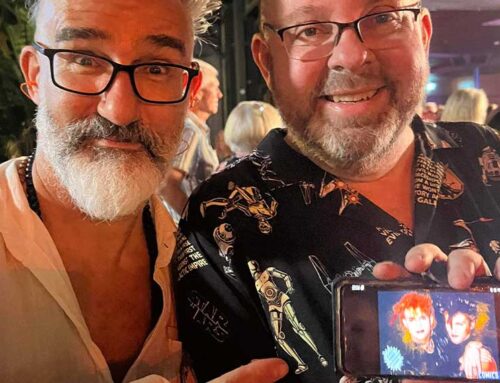
When my son was at school, like a lot of kids I suppose, he was bullied a bit. And I put an awful lot of effort into helping him interpret what was happening. To attach new meaning to what was being said and done.
I suspect it wasn’t always effective, but when he’d tell me a kid was mean to him, I’d say something like “you know what he’s actually saying is telling you that he’s ignorant and unkind”. Which, by the way, I think you’ll agree, is 100% accurate of bullies. And certainly more accurate than most of the things they were saying about my son.
I’m not a complete idiot, so of course I understand that in the moment, when someone’s telling you you’re no good, it’s easy to hear that you’re no good. But I always felt that my role as a parent, as a mostly response-able adult, was to help my son interpret these inputs in a more constructive way. To make it about the people doing it, not about him.
So I’ve gotta ask the question, does, or should, that logic apply more broadly?
When a surfing competition offers more prize money to a young man, than a young woman, should it be us telling young women “they’re telling you you’re not worth as much as men”?
We can be critical of the decision, we can campaign for change, but should we be attaching and communicating meaning in that way? Is it helpful? Or is it counter productive?
We could, of course say “Billabong and the World Surf League don’t care about equality”. Without ever bringing the worth and value of the young surfers, or any person of any gender, into the equation.
We could say “Billabong and the World Surf League might care about equality, but they’ve done a pretty fucking lousy job of showing it with this prize money situation.”
And if we were feeling particularly generous, we might even say “I’m pretty sure most of the people at Billabong and the World Surf League are awesome and actually do care about equality, but they sure did fuck this one up.”
We might even try and put some context around it. Without letting them off the hook, without letting them off the hook, without letting them off the hook, (No, that’s not a mistake, I just said it three times so that when you get angry and write “you’re a fucking sexist misogynistic asshole justifying their shit behaviour” I can say “actually, no, that’s not what I’m doing at all, I even repeated it three times just to make it really clear), we might even talk about the economics involved in sport (aka business) when money is involved, how sometimes sports evolve over time and at different rates, and that sometimes people make shit decisions because of money, and it doesn’t mean those shit decisions have anything to do with your worth. I might even point out Billabong have 10 pages of products for men on their website, but 25 pages for women, and that that’s not about worth either. It’s not because they think men are worth less than their women customers. Except, in that context, maybe that’s actually exactly what that means.
There’s literally nothing that makes the original prize money decision OK, but that doesn’t mean it’s not important for our young people to understand context. How it came about. And what it really means. That it’s a true reflection of the people making the decisions, not the people surfing or the people reading about it. It’s important for their own sense of self worth, to have more constructive meanings and understandings around these topics.
When it’s us that starts attaching certain meanings, drawing certain conclusions, and communicating them en masse via the media and social media, are we helping, or inadvertently telling young people how to interpret feedback in the most negative, destructive way?
Are we highlighting a problem, or contributing to it? Possibly a bit of both.
Don’t get me wrong, it’s way more fun saying how shit brands are when they fuck up. And the outrage has been pretty fucking epic, and my guess is, probably instrumental in affecting change. (If they don’t actually fix the prize money, they’ll at least think twice about posting a photo with those cheques next time, that’s for sure!)
But just as I would haven’t have sat down with my son and explained “That bully is picking on you because he thinks you’re no good and worthless and dumb”, I won’t be repeating and reinforcing similar messages about brands or organisations that may do the same thing. I’ll be commenting on what they did, what their values are, and what they can do about it, rather than spelling out all the worst possible implications and interpetations for young people to see, hear and feel.
Because if I do that, I’m not part of the solution, I’m part of the problem.
I don’t send out newsletters very often, and sure as shit don’t send spam, but if you’re keen to get semi-regular updates of the stuff I write, click here to sign up
Pic courtesy of Facebook.




